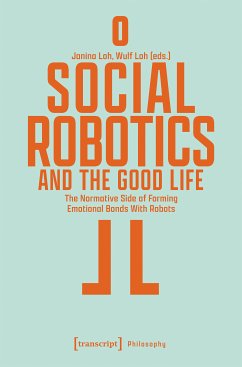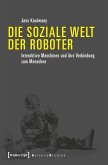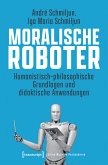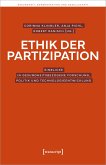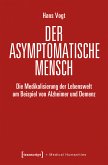Robots as social companions in close proximity to humans have a strong potential of becoming more and more prevalent in the coming years, especially in the realms of elder day care, child rearing, and education. As human beings, we have the fascinating ability to emotionally bond with various counterparts, not exclusively with other human beings, but also with animals, plants, and sometimes even objects. Therefore, we need to answer the fundamental ethical questions that concern human-robot-interactions per se, and we need to address how we conceive of »good lives«, as more and more of the aspects of our daily lives will be interwoven with social robots.
Dieser Download kann aus rechtlichen Gründen nur mit Rechnungsadresse in A, D ausgeliefert werden.

